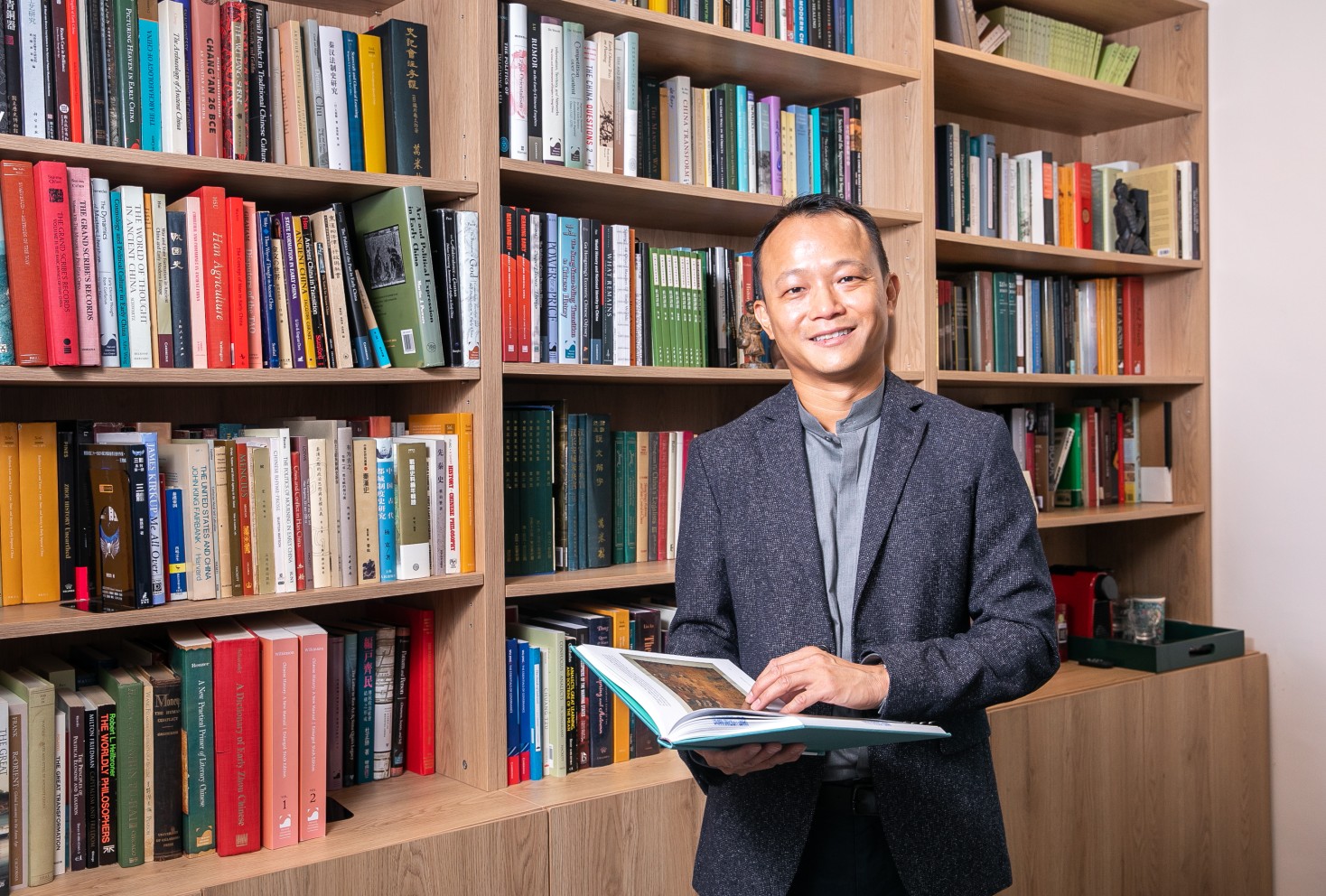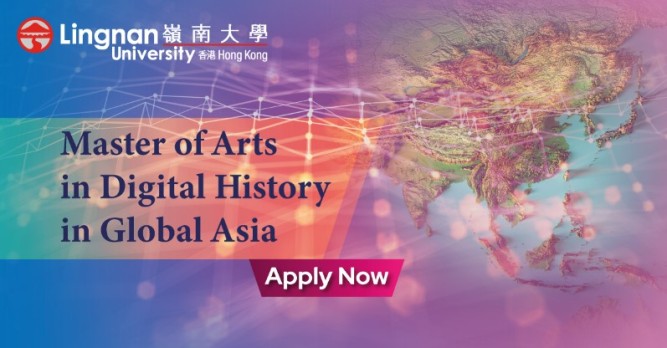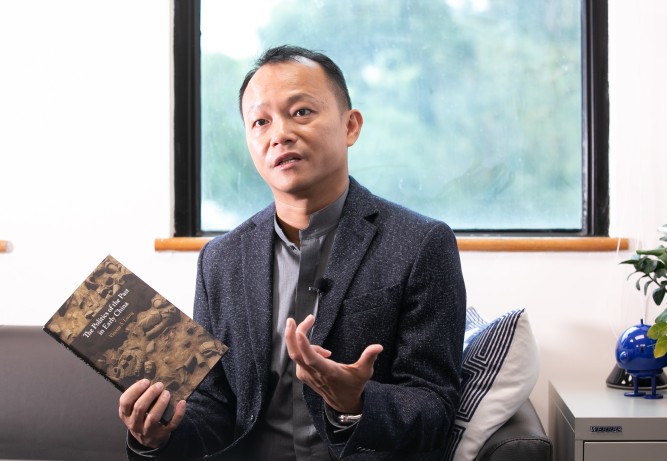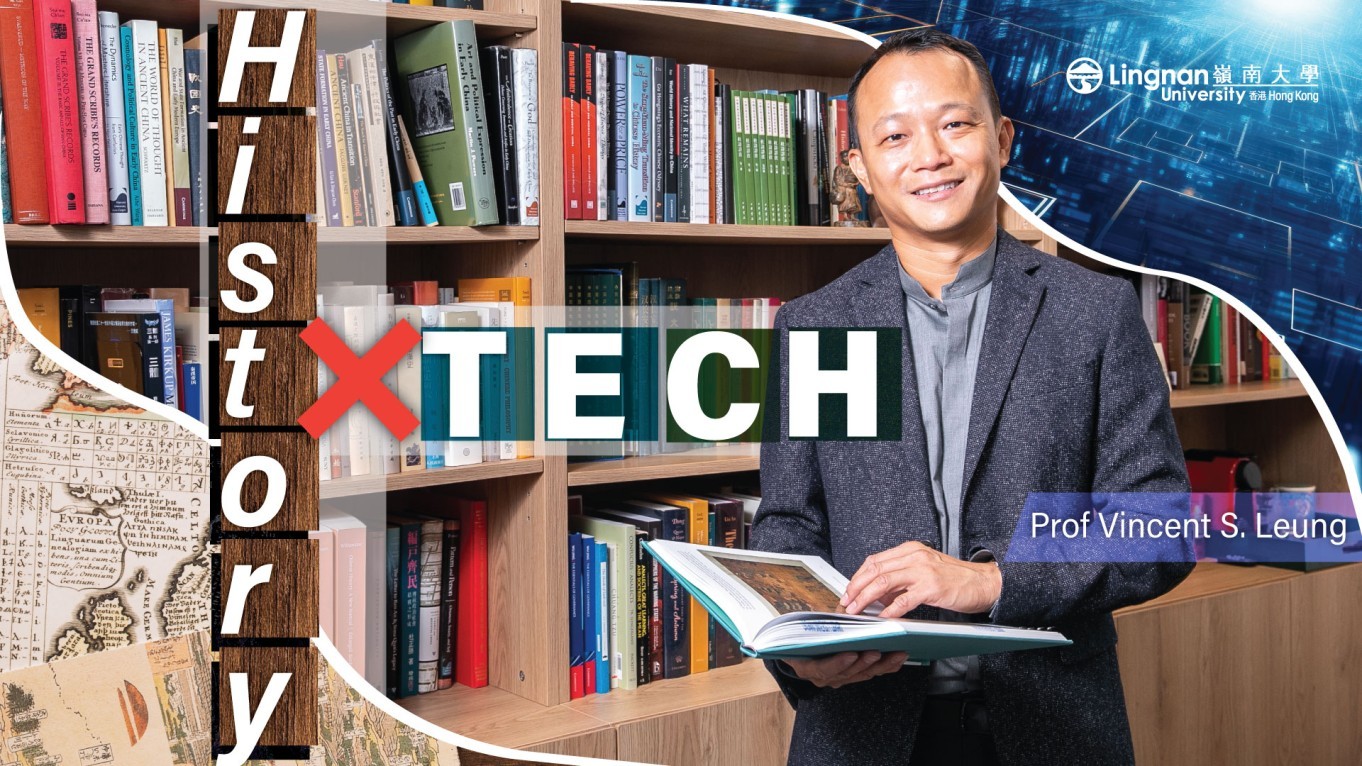[Interview] Prof Vincent S. Leung on the power of digital history

In the ever-changing world of technology, a profound question arises in humanities: will AI tools eventually make historians unnecessary? Prof Vincent S. Leung, Lingnan University's Associate Professor and Head of the Department of History disagrees. He says, "No matter how smart our machines eventually become, they can never replace historians who interpret the past and establish connections to the present."
Just like we need human thinking to solve complex math problems, history needs people to uncover its intricacies and relate them to our present reality. Prof Leung, initially drawn to mathematics, explains with a simple analogy, “A calculator is really powerful, but it can never be a mathematician. You still need someone to operate it.”
Advancing humanities
In recent years, blending tech tools with history has transformed how we study the past. Instead of manually sifting through vast volumes of text to extract insights, historians now have access to sources at their fingertips. They can analyse historical patterns, discover marginalised voices, and present historical information in new ways using computational tools, methodologies, and digital media such as 3D modeling and printing, Virtual Reality (VR) and Augmented Reality (AR).
These advancements have opened up exciting opportunities for researchers, teachers, students, and anyone passionate about history to explore and appreciate it from fresh perspectives.
We are exploring how these innovations can deepen our comprehension of the past. With these new tools at our disposal, the role of historians will become even more important. While digital tools excel at analysing historical data, it is still humans—not AI—can truly comprehend and explain the meaning behind the data.
Core questions about history are the same for thousands of years—how did the world change? What developments took place in the past? How does the world today relate to the world in the past? What is the relationship between past and present? Now, we are armed with innovative tools to seek answers.
“That gives us more power—not only by streamlining processes but also broadening the scope of questions we can pose to our information.”

New MA programme
In step with the evolving landscape of humanities, Lingnan University is at the forefront of leading change. Committed to being a leading international research-focused liberal arts institution, Lingnan is set to launch a range of new master's programmes, including the Master of Arts in Digital History in Global Asia, starting from the 2024/2025 academic year.
“Humanities and arts have long been a very key component of the liberal arts education at Lingnan, where we have long made outstanding contributions. One question we constantly ask is, what does it mean to do humanities, especially now in the 21st century? In many ways, this new MA programme serves as an answer.”
This pioneering MA programme marks the first of its kind in Hong Kong and the greater region at the postgraduate level. It is closely aligned with two key strategic initiatives of Lingnan University, to optimise liberal arts education in the digital era and facilitate knowledge transfer with digital history as a public history vehicle.
Over the past decade, there has been growing interest in how digital tools can enhance historical studies. “But no programme yet in Asia has been created to give students systematic training in becoming very digitally literate in the context of historical discipline,” Prof Leung explains.
The programme integrates digital approaches to the study, research, and re-exploration of Asia's global past, its diverse formal and informal networks, human and non-human mobilities, complex cultures, and incessant engagement with global turns. This unique approach will empower our students to attain advanced digital literacy skills, providing them with a distinctive edge in academia or other professional paths.
“We aim for our students to be adept historians in the 21st century. One key part is to really understand the potential of new digital tools and effectively applying them in their historical studies. I envision this becoming a distinctive aspect of Lingnan's liberal arts education moving forward.”
From maths to history
Resonating with Lingnan's emphasis on liberal arts education, Prof Leung's academic journey is captivating. While pursuing his undergraduate studies in mathematics and economics, he concurrently cultivated an interest in the history of East Asia. This dual focus eventually led him to make a significant shift to history for his graduate studies, including a master's and PhD at Harvard, followed by teaching roles in the US post-graduation.
What prompted this transition?
“Both subjects really excited me intellectually, but I felt more drawn to history by that point. I just knew my calling was in history if I were to pursue further studies.” Prof Leung agrees that Mathematics is precise while history is more open-ended.
The questions we pose, the answers we give—these aspects differ between the two fields. Studying history felt akin to conversing with people from eras long past.
Despite the great distance in time, we share numerous common concerns with historical figures. Their interesting responses to age-old questions frequently offer profound insights into contemporary challenges we encounter today.
For over two decades, Prof Leung has never looked back, “That was the right decision. I just absolutely loved it.”
Returning as a distinguished historian to Hong Kong, he joined Lingnan in 2017. He regards the publication of his inaugural monograph, titled The Politics of the Past in Early China, as one of the pivotal contributions made in the University. Based on his dissertation, this innovative study delves into the ways that the past was mobilised as ideological capital in political debates under the rise of empires in early China.

Prof Leung’s inaugural monograph, titled “The Politics of the Past in Early China”.
Transforming perceptions of history
Looking forward, Prof Leung eagerly awaits the launch of the new MA programme at Lingnan, set to draw in a diverse group of enthusiastic students from Hong Kong, Mainland China, and abroad. The programme is anticipated to bring in engaging speakers, workshops, stimulating discussions in digital history, and a rich array of resources to Lingnan. These offerings are designed to ignite students' passion for leveraging digital tools in humanities studies and liberal arts education.
“Moreover, I aspire to see our History Department's research and courses spark a newfound interest in history among students at Lingnan and Hong Kong. While some may view history as old-fashioned and tedious, mainly about memorising facts from books, the truth is quite different. History is anything but that. There is still so much we don't know and many questions left unanswered, presenting endless opportunities.”
Without a good understanding of the past, it is not possible to understand the world today.
“Through extensive research endeavours, diverse course offerings, and the innovative integration of digital tools, we aim to inspire students to perceive history as it truly is—an exciting, fun and dynamic discipline that enriches our understanding of the world today,” he concludes.


